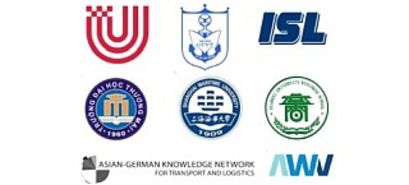Scientific Background
A sustainable resource-efficient regional development is expressed not only in an economic growth and international exchange of goods. Efficiency means today to be perceived and accepted as an innovative valueadded partner in international supply chains. The infrastructure-related requirements become the biggest handicap and set ecological and economic limits in dynamic economic and scientific regions of emerging countries. Therefore, the success in linking regional development, valueadded processes, hinterland transportation and innovation is crucial for the competitiveness and sustainable regional development. For this purpose, the approach of cluster management requires a systematic anchoring and must take into account the regional economic characteristics.
Project and Objectives
The realisation of cluster management is carried out by a trans-national research infrastructure, which is first based on a research group and in the second project phase on a long-term institutionalized research association in cooperation with the research and transfer partners. The expansion of the existing research network is supported by a permanent scientific exchange in the field of applied research and development. Communication, collaboration and knowledge transfer within the established logistics-related network between different stakeholders such as businesses, political committees, societies, associations, education and training institutions are supported time-delayed through the web-based cluster marketplace “Asian-German Knowledge Network for Transport and Logistics (AGKN)”. The platform is accessible under www.agkn.de and can be used after successful registration and authorization for communication, collaboration and knowledge generation by all project partners and network users.
Aspects of Research Structure
The project’s target is the theme-oriented consolidation of the research structure and the establishment of a permanent, independent association structure “Association of Asian-German Knowledge Network for Transport and Logistics”. The structure of the association will be considered in a dialogue with partners. Cooperative solutions in terms of coopetition focus thematically on port regions within a long-term perspective and take into account path dependency and region-specific institutional arrangements.








